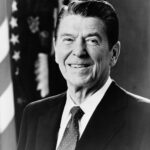Understanding the Trader Principle
At the heart of individualism, both as a philosophy and a tangible basis for societal organization designed to promote happiness, is the idea of self-ownership. Individuals are independent and sovereign entities who, by means of their rational capacity, own the right to their lives.
But the inalienable concepts we associate with individual sovereignty–life, liberty, and the pursuit of happiness–all ultimately rest on one other right: property. Ayn Rand, perhaps more than any other philosopher, recognizes and emphasizes this relationship in her writing.
As tax season rolls around every spring, individuals grumble about whether they actually own anything if the government can lay claim to a percentage of it. And the same holds true for the products of an individual’s mind and his labor because ownership starts with the self. If you don’t own your body and your mind and aren’t able to exercise them in whatever way you see fit, you don’t own anything.
As protagonist John Galt says in Atlas Shrugged, “The source of property rights is the law of causality. All property and all forms of wealth are produced by man’s mind and labor. As you cannot have effects without causes, so you cannot have wealth without its source: without intelligence.”
When property rights are respected, one individual may produce something that another desires. And he may set what he believes is a fair price for the product of his mind and his labor. Another individual may use her system of value and determine whether or not that price is fair. Regardless of whether trade occurs, the sovereignty of both individuals is respected and both are able to use their minds to make decisions they believe will improve their lives.
As charges of hedonism are frequently leveled against Rand’s supposedly radical idea that the individual has the right to exist for his own sake, it’s important to note that one individual’s welfare is only truly protected here if the property rights of all are protected.
“Any undertaking that involves more than one man, requires the voluntary consent of every participant. Every one of them has the right to make his own decision, but none has the right to force his decision on the others.” Rand wrote in an essay called “Man’s Rights” in The Virtue of Selfishness.
It may not immediately affect a particular individual if force is used to coerce another into participation. For example, if the state mandates a cap on the price of eggs to help consumers fight inflation, a consumer might see this as a positive. It benefits them and is the farmer or the grocer really hurt by the loss of a few dollars? Shouldn’t they make a reasonable sacrifice to benefit the public?
But such a mandate does negatively impact those who don’t seem immediately harmed. It sets a precedent that erodes an individual’s sovereignty over their own property which could in future be used against another type of producer. It inserts into society the idea that property rights aren’t absolute and can be sacrificed if the needs of others demand it. And it gives the state, which has a monopoly on violence, the ability to determine whose needs need to be protected at any given time.
Such an approach to governance necessarily pits one individual’s needs against another individual’s needs. As Rand notes in “The Cashing-In: The Student ‘Rebellion,’” without property rights “there is no way to solve or to avoid a hopeless chaos of clashing views, interests, demands, desires, or whims.”
Rand uses the figure of the trader as a moral symbol for respectful relationships between productive individuals. In “The Objectivist Ethics” Rand describes the trader as a figure who “earns what he gets and does not give or take the undeserved.” The trader deals with others “by means of a free, voluntary, unforced, uncoerced exchange–an exchange which benefits both parties by their own independent judgment.”
The symbol of the trader should stand as a reminder as the idea that tangible things like jobs, housing, and food are rights gain traction. The individual has a right to his own property, that is true. But that right does not include the ability to take someone else’s property. Need is not a moral sanction for theft. “Any alleged “right” of one man, which necessitates the violation of the rights of another, is not and cannot be a right.” Rand wrote in “Man’s Rights.”
In discourse about whether ideas like the right to food or housing are valid, we should look to the trader principle and remember how the trader deals with others. Does an idea require a coerced exchange? Does it benefit one party at the expense of another or run roughshod over their individual judgment? If it does, it’s invalid and a threat not just to one maybe unpopular person’s property, but to all.




